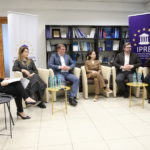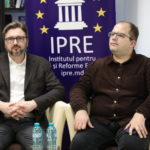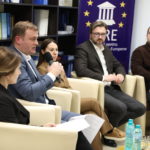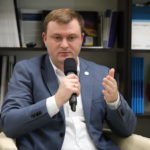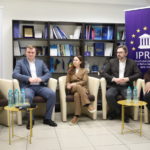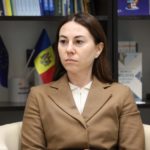EU Debates Cafe: Economic Integration of the Republic of Moldova into the EU: Opportunities and Necessary Conditions for Attracting International Clothing Brands to the Moldovan Market
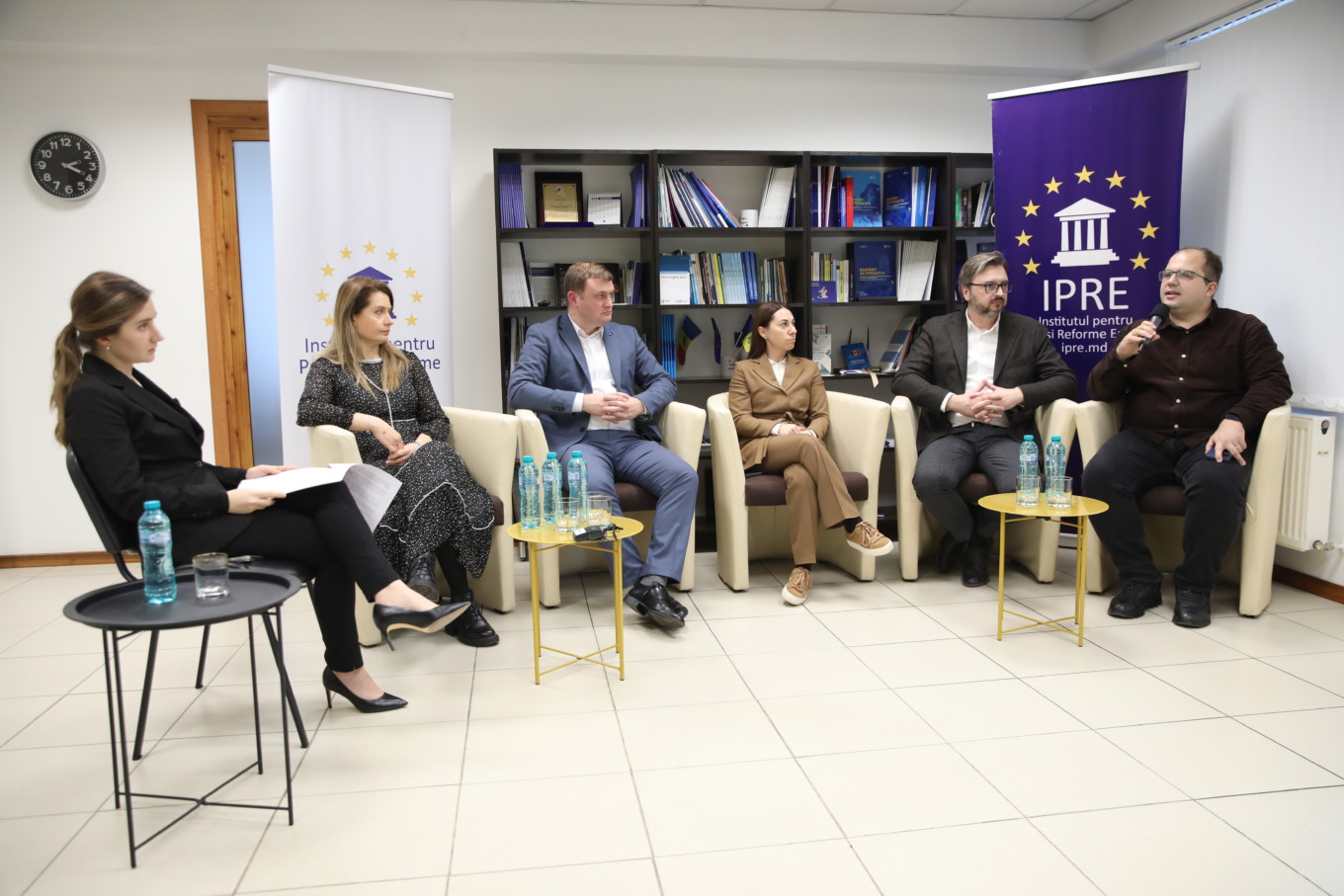
Since 2014, bilateral relations between the Republic of Moldova and the European Union have been based on the Association Agreement, which includes a Deep and Comprehensive Free Trade Area. On June 23, 2022, the European Council granted candidate status to the Republic of Moldova, thus opening a new strategic chapter in the state’s economic development. However, Moldova still does not represent a favorable environment for attracting foreign investors. The absence of international brands limits consumer options, affecting the country’s economic development.
These were the topics of a new edition of discussions in the EU Debates Cafe format, organized by the Institute for European Policies and Reforms (IPRE), in cooperation and with the support of the Hanns Seidel Foundation. During the event, moderated by Elena Bolocan, IPRE project coordinator, the guests spoke about solutions to address challenges related to attracting foreign investors to the Republic of Moldova and the country’s economic integration into the EU.
Below, we present some of the main interventions of the speakers.
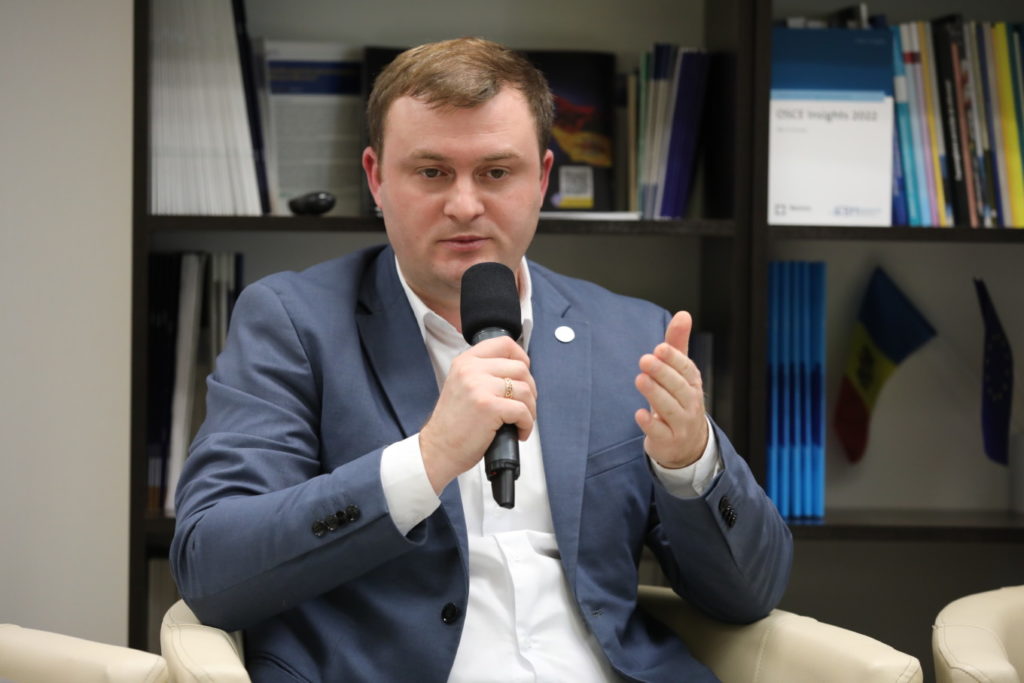
Ion Iordachi, Deputy Director of the Investment Agency: “We actually have several sectors in which we target investment attraction, and we look at the textile sector, which we usually call TAFL, including both textiles and furnishings, i.e., the entire light industry. By the volume of exports promoted or generated by this common industry, it ranks in the top 5 or 6, depending on the year, along with the furniture sector. This industry generates enormous exports, and therefore, in addition to targeting investment attraction in the field, we try to understand the problems of existing investors, not just investors. We try, step by step, to solve the problems, starting with labor force and others. We try to understand the needs and solutions if we can apply them, to then move on to the non-residential construction industry, to understand the criteria for large brands to come here to the market. Because each of these brands has criteria to penetrate a new market, and segmented down with these problems, we try to see how we can reach them and how we can start some negotiations, if we talk about brands coming. Of course, as an Agency, we also want production. We discuss with them if they can come with a research and development part or a production part, if not, with their IT part even better. So, we want added value from the industry, even though we understand that it may be more difficult to reallocate it immediately with immediate production, then these component parts, which are alongside the major production industries, can be attracted more easily”.
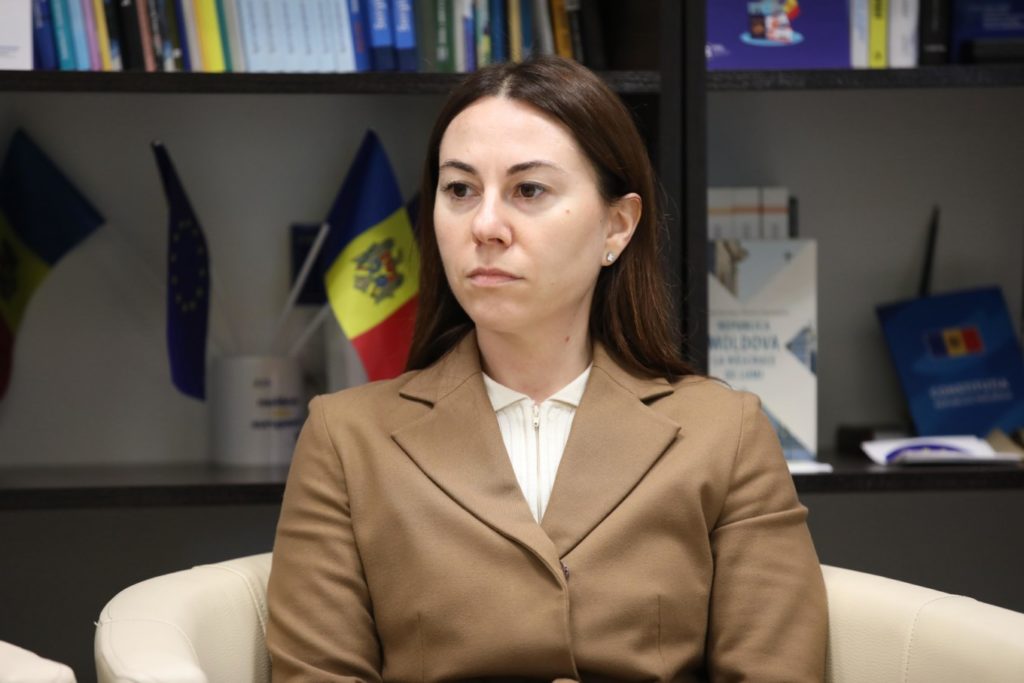
Marcela Lozovanu, Executive Director of the Employers’ Association in the Light Industry: “Obviously, it is a risk and a fear of the sector when other players enter the market of the Republic of Moldova concerning international brands. Then there will be a mix of brands, but we cannot stop the market and we cannot stop competition because competition is always healthy. We cannot limit the consumer to have a limit to consume A or B. We need to create diversity, but the sector would suffer a lot because, to produce locally in Moldova, there are many barriers, but it is not impossible. The industry is developing, both through investments and through digitization, innovation. There is not enough workforce, but we try to optimize the processes”.
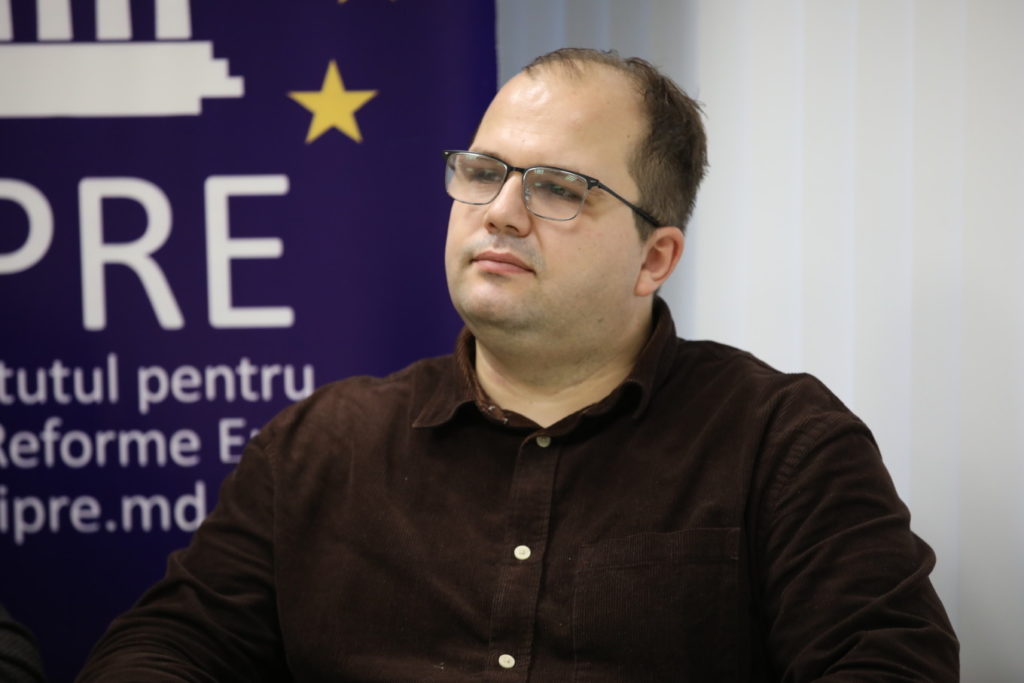
Stas Madan, Economic Expert at Expert-Grup: “In the Republic of Moldova, for many years now, imported textile products have dominated the local market. A few years ago, this ratio was over 70%, although in recent years local brands have managed to gain ground, more operators have appeared in this market. But if some international brands come, they will most likely be substituted with other imported products, which are currently less qualitative. Then the consumer will decide on products that are more qualitative and better, judging by the price/quality ratio. In my opinion, it would be ideal for the Republic of Moldova if attracting international brands would also involve production facilities. I believe we have all the prerequisites for this because the majority of our textile industry is still not very competitive. Although we had around $400 million in exports from this industry overall last year, over 80% continue to be re-exports. And this is the clearest sign that still a very large part of the turnover in this industry is formed by a somewhat more rudimentary operating regime, in which only production – cutting, sewing – takes place, and the added value is formed in other countries. Obviously, from this perspective, it would be an opportunity for us if we could attract these brands because it would provide greater stability and added value to our industry”.
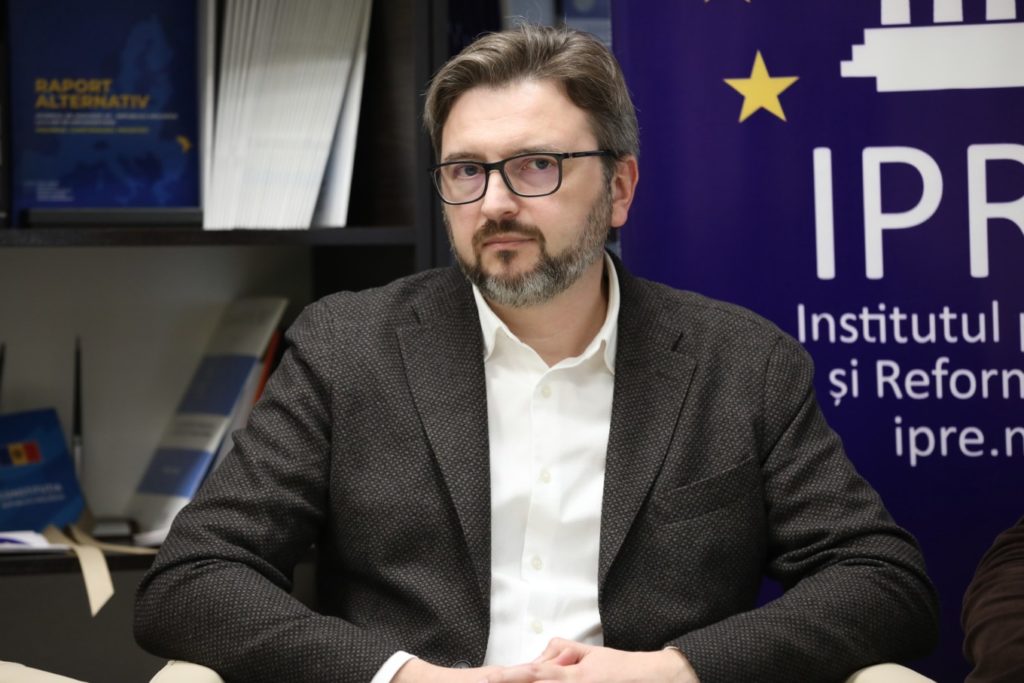
Mircea Paun, CEO of PortMall: “The attitude of international brands towards the retail market in the Republic of Moldova has not changed. The fears are the same: purchasing power, population exodus, lack of quality spaces. This is a big disadvantage. International brands impose criteria that no one from the local market can offer. Plus, with low purchasing power, they have nowhere to develop. When they enter a market, they are interested in opening at least 4-5 locations. When they come to us, they look, see, and say: ‘I’ll open one in Chisinau, what do I do next?’ So, on the other hand, if we analyze Turkish brands, which are on our market, having discussions with them, knowing them personally, they are somehow very impressed by the results they achieve here. So there are locations that perform better than many locations in neighboring countries. So, there is somehow a lack of brands on the market, people are eager, that’s why the layer with higher financial potential goes to neighboring countries to shop, but having them locally, they will certainly take advantage of what will be here. Therefore, brands that have had the courage to enter perform quite well. From my previous discussions with certain large brands, there is also the issue of taxes, taxes. They say the following: ‘If I enter the market of the Republic of Moldova, my product will be 20% more expensive than in Iasi, which is not okay for me as a brand’. So we need to pay attention to these economic aspects and create certain facilities or adjustments to legislation to attract international brands and make the market in the Republic of Moldova interesting for them”.
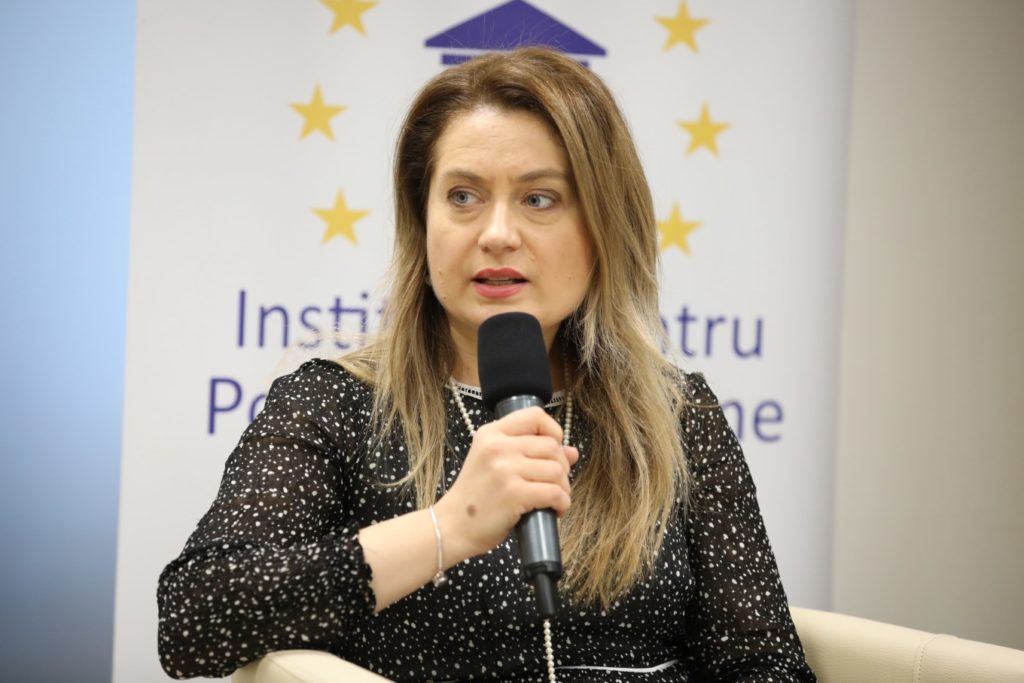
Mariana Rufa, Executive Director of the European Business Association in the Republic of Moldova: “It is necessary to analyze developments in the labor market in Moldova, yes, and the negative impact that has actually occurred on the labor force situation, in relation to global demand, which has actually decreased in the textile field. And when we talk about textiles, I am not just referring to textiles as clothing, but also to the textile industry for the industrial sector. So it’s no secret that the Republic of Moldova is facing an unprecedented labor shortage. Which is reflected not only in the textile industry but also in other fields. Unfortunately, we are still negotiating with the responsible authorities to reach a solution to be able to import labor safely for the country but also in a way that will solve the situation for economic agents in various sectors. And when it comes to labor, then we need to think about how to make the sector more attractive for citizens of the Republic of Moldova to work in this sector. Honestly, let’s find those citizens in the Republic of Moldova whom we can pay salaries to so that citizens of the Republic of Moldova do not migrate to another country. But all this has to be competitive with the costs in other countries. We are now in a situation where we have to ensure that level of all elements in the chain to be competitive with other countries. Because, in fact, labor costs due to the labor shortage are rising”.
For more details, you can watch the video recording of the event on privesc.eu here and on Realitatea Live here.
The event was organized within the project “EU DEBATES CAFÉ: Advancing knowledge and expertise on EU institutions and policies in the Republic of Moldova”, implemented by IPRE, in cooperation with the Hanns Seidel Foundation in the Republic of Moldova and with the financial support of the Federal Ministry of Foreign Affairs of Germany.

